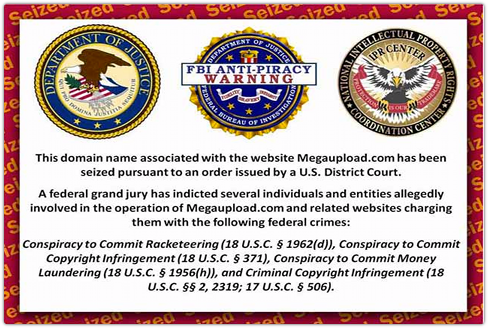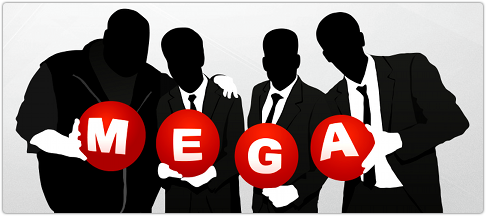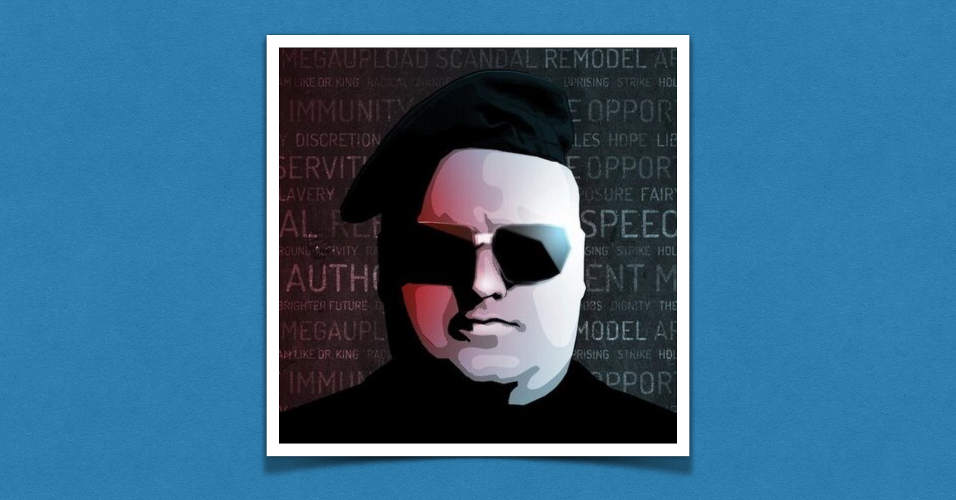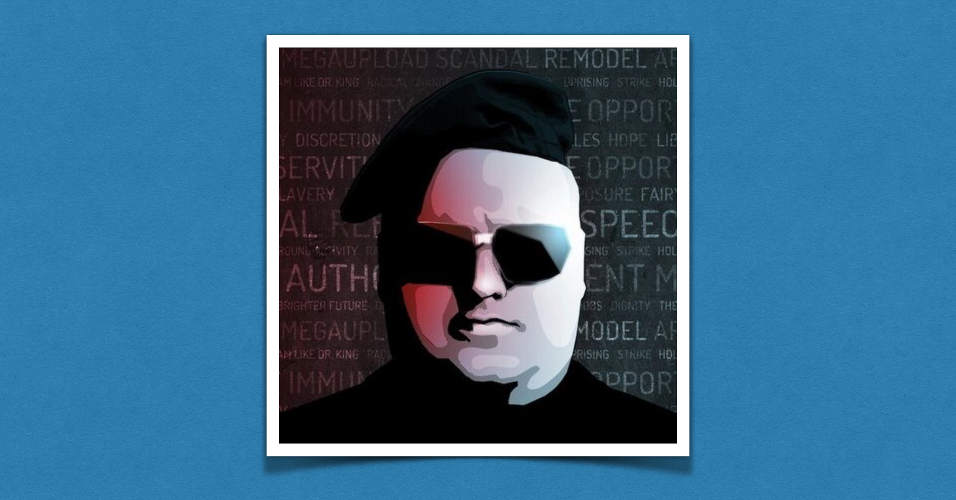– Kim Dotcom as you will find him on Twitter –
It seems like ages since we last wrote about Kim Dotcom.
Indeed, it is ages – more than a year, in fact – since our previous piece on the larger-than-life online entrepreneur who used to run a website called Megaupload.
Megaupload, essentially a file sharing site, was taken down by the FBI nearly four years ago.
Dotcom (born Kim Schmitz, and also known as Kimble and Kim Tim Jim Vestor) was accused of a raft of serious criminal offences relating to copyright infringement, money laundering and racketeering.

Racketeering is the American term for organised criminality, where you run your criminal activities as though they were a business.
Indeed, the main arguments that boosted Dotcom’s charges from what you might call “plain old piracy” to “living on the proceeds of piracy” seem to revolve around the huge revenues he derived from pirated uploads.
It was a crooked business, argued accusers and critics, because Megaupload paid bonuses to users who uploaded popular pirated content, but paid nothing at all to the creators of that content.
Simply put, they said, the business rewarded piracy, and piracy, in turn, rewarded the business.
Megaupload countered that argument by saying that it merely operated a popular and very successful cloud storage site, with good performance for a fair price.
Yes, rogue users could upload pirated content, and other rogues could download it later.
But with no built-in search facility, and with a complaints process for removing infringing content, retorted Megaupload, how could the site possibly be relying on pirated downloads to fuel its business?
And thus began a legal saga with many twists and turns.
Within the first year, Dotcom:
- Was arrested amid high drama at his mansion. (New Zealand’s priciest house, apparently.)
- Was refused bail and remanded in custody,
- Later got out on bail, on condition of keeping away from helicopters and the coast.
- Had the search of his house declared legally dodgy.
- Won the right to see previously-suppressed FBI evidence against him.
- Obtained approval from the courts to access millions of dollars of previously-frozen funds.
- Saw New Zealand’s Prime Minister approve an enquiry about the investigation.
There was lots more after that, notably that Dotcom and his then business associates opened a brand new cloud storage site, this time called Mega.
Mega launched with great fanfare, and with a cryptographic twist.

– Kim Dotcom, at 200cm, is on the left –
By using JavaScript encryption software that ran right inside your browser, Mega encrypted your data before it went to the cloud, and only ever decrypted it in your browser when you fetched it back.
The encryption keys were generated by your computer, not by the Mega website.
That was good for security, which made for great marketing copy, but it was also good for deniability, because Mega could honestly say that it couldn’t tell if you’d just uploaded pirated material.
From Dotcom’s perspective, Mega didn’t work out too well.
Dotcom has now fallen out with the service, after a Chinese investor bought up close to 20% of the shares, only to have them frozen by New Zealand authorities on suspicion – irony of ironies – that he was laundering money.
Dotcom’s next business step seems to be planning the launch of “Megaupload Version Three,” once his non-compete agreement with Mega ends in 2016.
This time, it will supposedly be a Wikipedia-style, open-source, free cloud storage service funded by donations, not by subscriptions.
At least, that’s the plan if Dotcom doesn’t get extradited to the USA to face those racketeering and money laundering charges that he’s been fighting for close to four years.
Last week, the New Zealand Court of Appeal threw out Dotcom’s latest attempt to delay his extradition hearing, which is scheduled to start next week (21 September 2015).
As the judgment drily notes, “That fixture [the 21 September hearing] is the tenth one that has been made by the…Court.”
The judgment makes for surprisingly interesting reading.
For example, Dotcom and his associates claimed to the court that they needed extra time “to call technical evidence from American experts as to the way similar cloud storage websites are run.”
The court wasn’t buying that argument, summarising very pithily that “the appellants can give evidence themselves as to technical aspects of Megaupload and cloud storage systems if they wish. They ran Megaupload for many years.”
So, Dotcom will finally face the music next week, to find out whether he’ll be heading off to trial in the USA, or settling down to have a third crack at the cloud storage business.
How would you play this one?


Peter Yates
Surely he was ‘charged’ or accused *4 years ago* .. “of a raft of serious criminal offences relating to copyright infringement, money laundering and racketeering.” .. Why do you think he needs to be ‘charged’ again? .. The main point of the article is that: “Dotcom will finally face the music next week, to find out whether he’ll be heading off to trial in the USA.” It says nothing about him being charged *again*.
Paul Ducklin
Technically, he hasn’t actually faced the charges yet because he’s not in the USA, and he’s keen to avoid going there.
However…I think you are complaining about the wording of the poll, am I right? That’s just asking what *you* would do. Would you charge him, or not. (Or if you consider him already charged, would you keep or drop the charges.)
Peter Yates
Okay, maybe he needs the charges read to him in a USA court of law before he can consider himself ‘charged’ under the USA judicial system. Maybe having the charges explained in a NZ court is not enough, technically speaking. (I know, I am being pedantic, sorry.) …… What would I do? Apart from the copyright issues, I would still charge him for the alleged money laundering and racketeering. I think those charges are more serious. Then it would be up to the court to decide whether he is guilty or not. …… (PS. It wasn’t the actual *wording of the poll that I was concerned about.)
Richard Klimming
I highly doubt that Dotcom anticipated Megaupload being a piracy site from the beginning. However, once it started happening, it’s unlikely he objected to the extra profits.
Unethical business practice? Maybe. But if he had a team dedicated to removing copyrighted material, I don’t think he should really be held legally responsible for user-submitted content. You don’t see anyone raiding Google just because YouTube still doesn’t catch all of the copyrighted material uploaded. Heck, a few years ago, YouTube gained a lot of its popularity because you could listen to copyrighted music for free without paying a subscription or downloading anything.
They’re trying to make an example out of Dotcom to scare people who pirate content, but in doing so, they’re being extremely unfair to him.
Paul Ducklin
As mentioned, his detractors seem to be claiming not only that he was happy to live the high life off the proceeds of piracy, but also that the company deliberately rewarded the sort of uploads that brought the most revenues, even if they were pirated, while making no effort to pass on any revenue to the rights holders. (YouTube, whether you love it or hate it, does do that.)
thedyingmoments
He knew exactly what it was going to be. Rapidshare was the darling of pirate forums because it pioneered the ‘rewards for traffic’ system, spawning a number of copycats … including MU.
gpj103
Hopefully he will be sent to prison so that we no longer have to hear about him and his ill gotten gains. 😀
Just Another Anonymous Troll
Criminal copyright infringement is uber-sketchy here. IIRC he would actually have to sell copyrighted material to go to jail. If he never got a notice to remove the material, it’s not his problem. Copyright law doesn’t require you to hunt down infringers yourself.
Paul Ducklin
I think he is accused of “conspiracy to…” and of “racketeering.” If the allegations are true that the company effectively solicited uploads of infringing material as a way to attract new users who would pay and then download it, saying, “Oh, but I never actually uploaded it myself” is a bit of a cop out, wouldn’t you say? A bit like someone who fences stolen goods saying, “But I never stole anything myself. I merely got rich off others doing so. And if the real owner had showed up at my shop I’d have handed over the item if they had a receipt.”
hotdoge3
can not send him on copyright charges
can on Racketeering
it may take a long time we see
do a lookup Kim Dotcom: I don’t trust Mega.
hotdoge3
in Court
Megaupload was effectively an internet service provider and as such, under the Copyright Act.
was protected from prosecution.